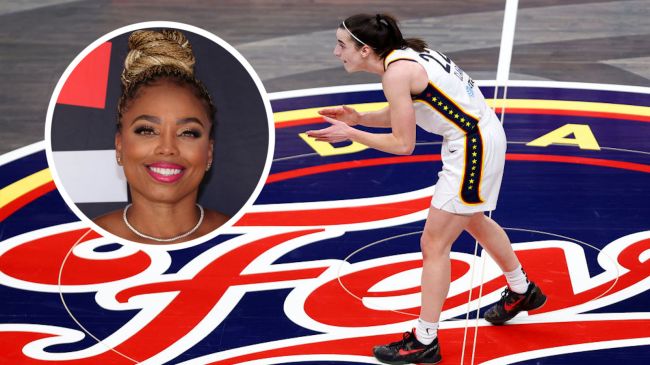
Stop us if you’ve heard this one before: former ESPN personality Jemele Hill has turned a sports conversation into a debate about race.
Speaking to the Los Angeles Times, Hill unsurprisingly turned the historic success of Caitlin Clark into a race discussion, saying it would be “naive” to suggest they don’t play a part.
“We would all be very naive if we didn’t say race and her sexuality played a role in her popularity,” Hill said.

Hill said that Clark’s success is “problematic” because of what it says about WNBA players who came before her — none of which, by the way, are the highest scoring player in the history of both men’s and women’s college basketball, which is exactly what Clark is.
“While so many people are happy for Caitlin’s success — including the players; this has had such an enormous impact on the game — there is a part of it that is a little problematic because of what it says about the worth and the marketability of the players who are already there,” she continued.
Hill believes that Clark’s success is leading to the “erasure of Black women from a league they built.”
“There’s plenty of room to highlight and celebrate Caitlin Clark’s popularity while also discussing ways in which to not erase Black women from a league that they have built and continue to build.”
Hill’s argument is flawed for a handful of reasons, the primary being that she’s ignoring the fact that Clark’s success is largely built on her talent and nothing else.
There have been plenty of white, straight stars to come into the league in recent years — Sabrina Ionescu, for example — and they haven’t had the same impact on the women’s game that Clark has.

There’s also Cameron Brink of the Los Angeles Sparks, who has had nowhere near Clark’s cultural relevance despite being the #2 overall pick in the draft and often being compared to Cameron Diaz (if she played basketball).
After her first four WNBA games, Clark is averaging 17 points, 5.5 assists, and 4 rebounds per game.
Relative Articles
None found





